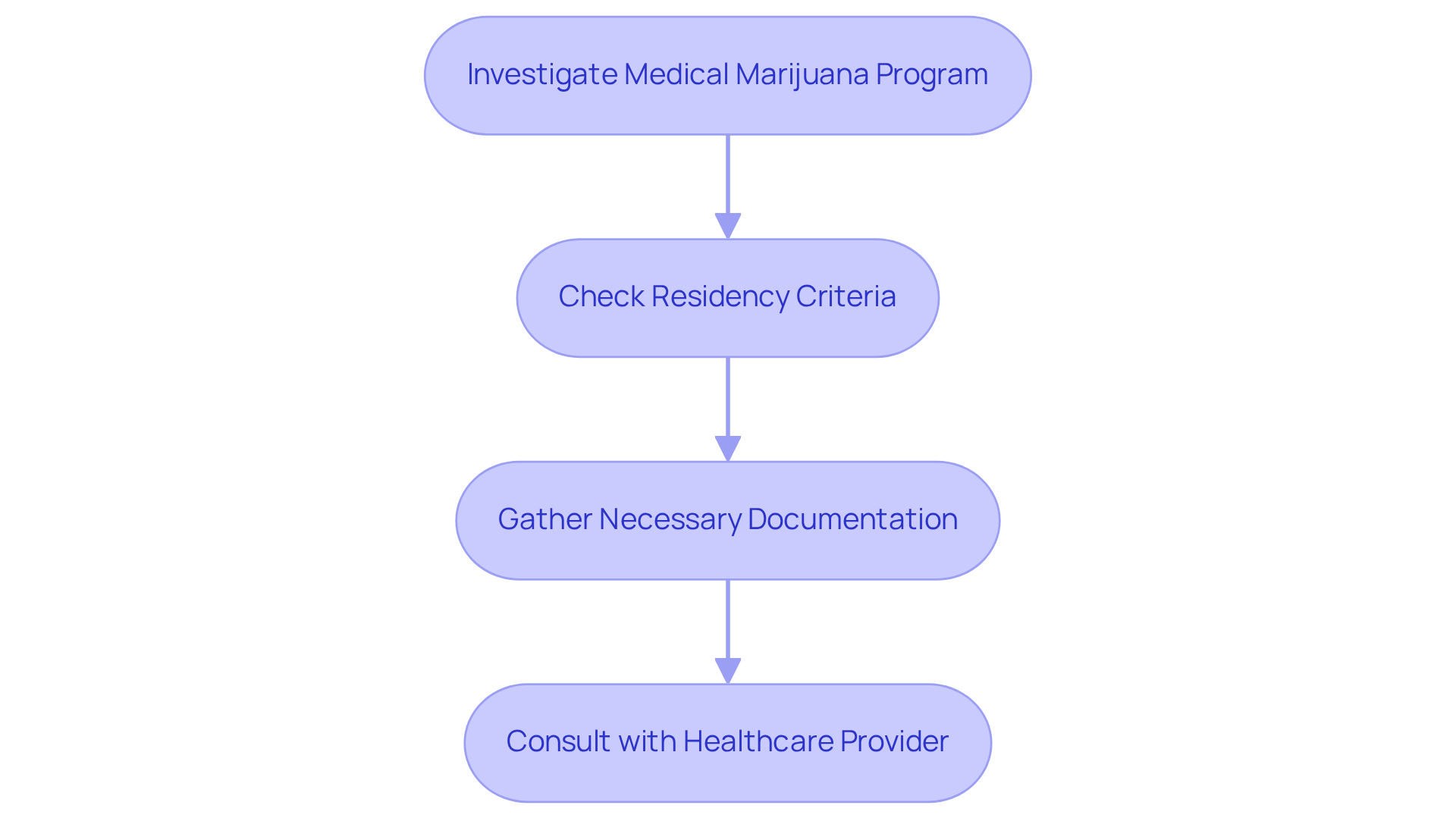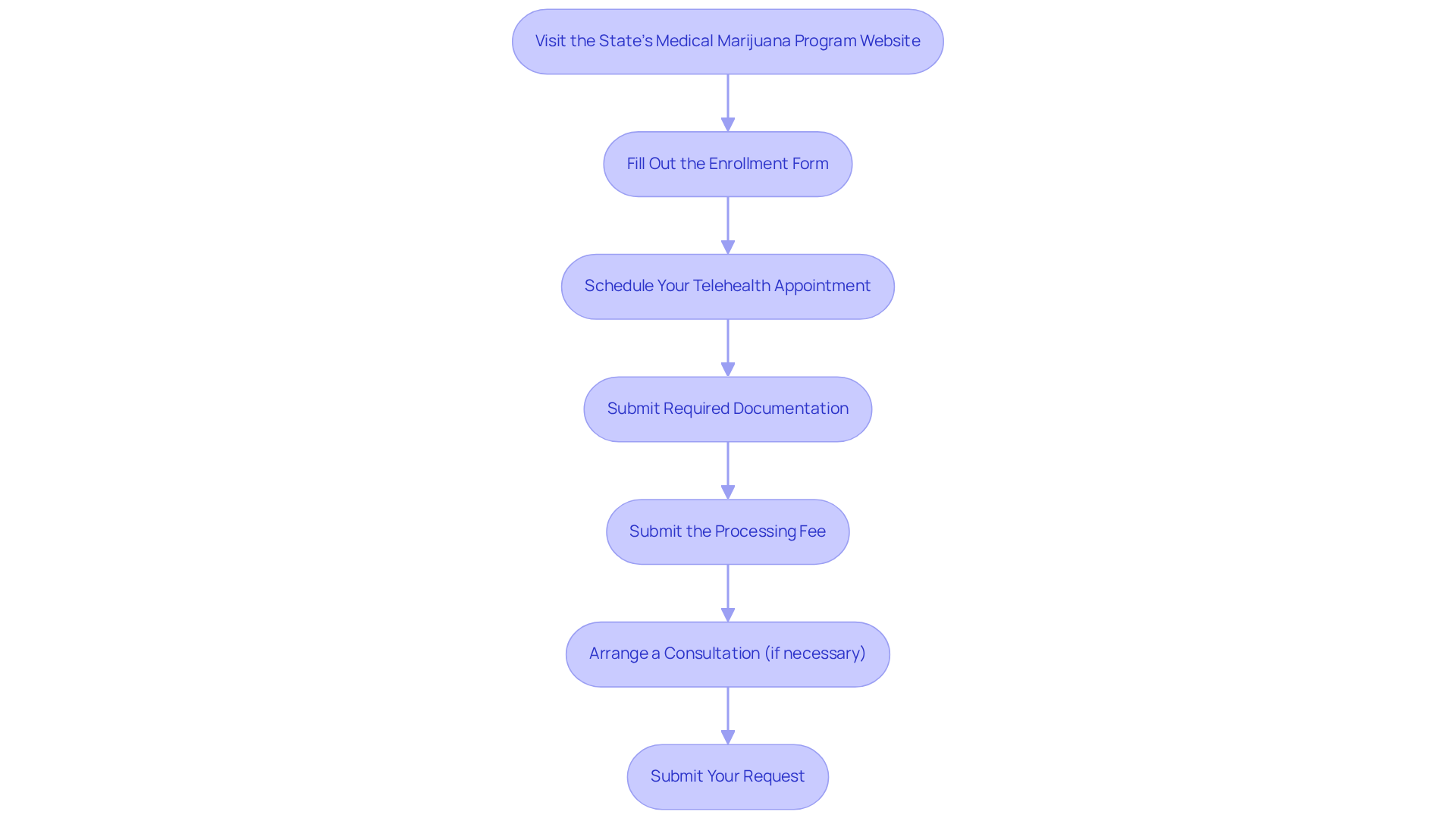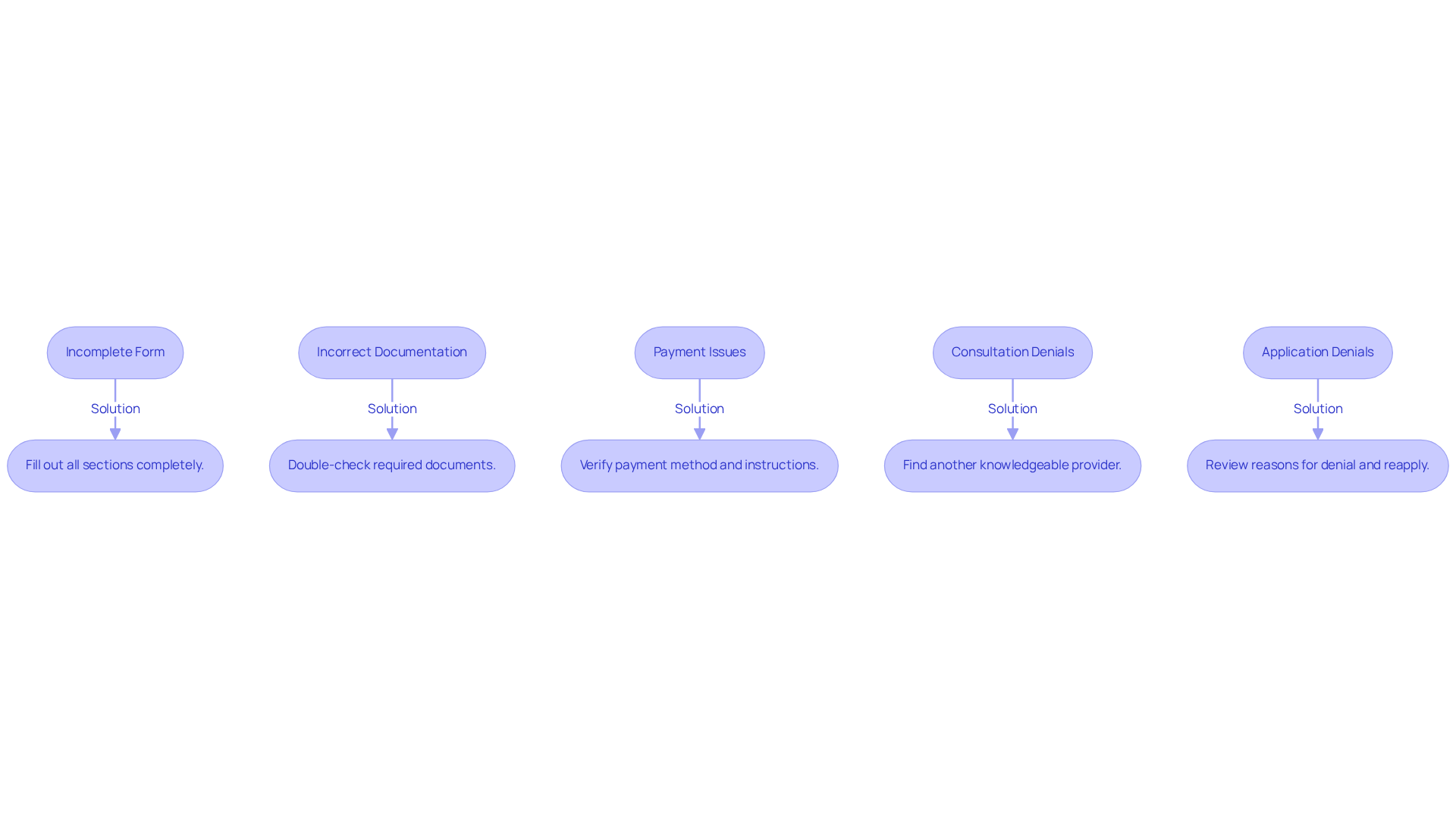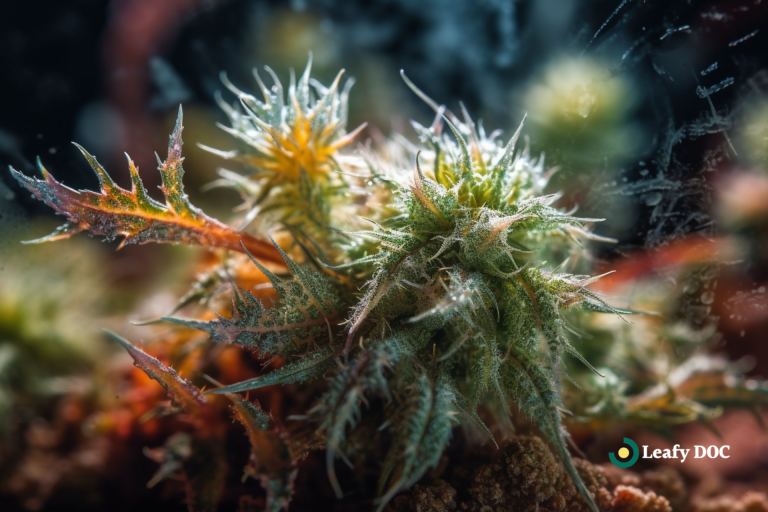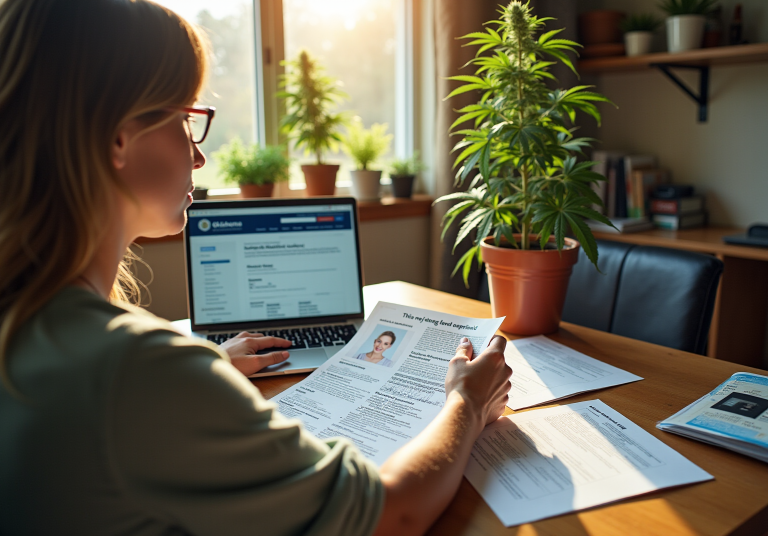4 Steps to Understand Can I Get a Medical Card in Another State
by Maya Green · July 9, 2025
Discover if you can get a medical card in another state with our comprehensive guide.
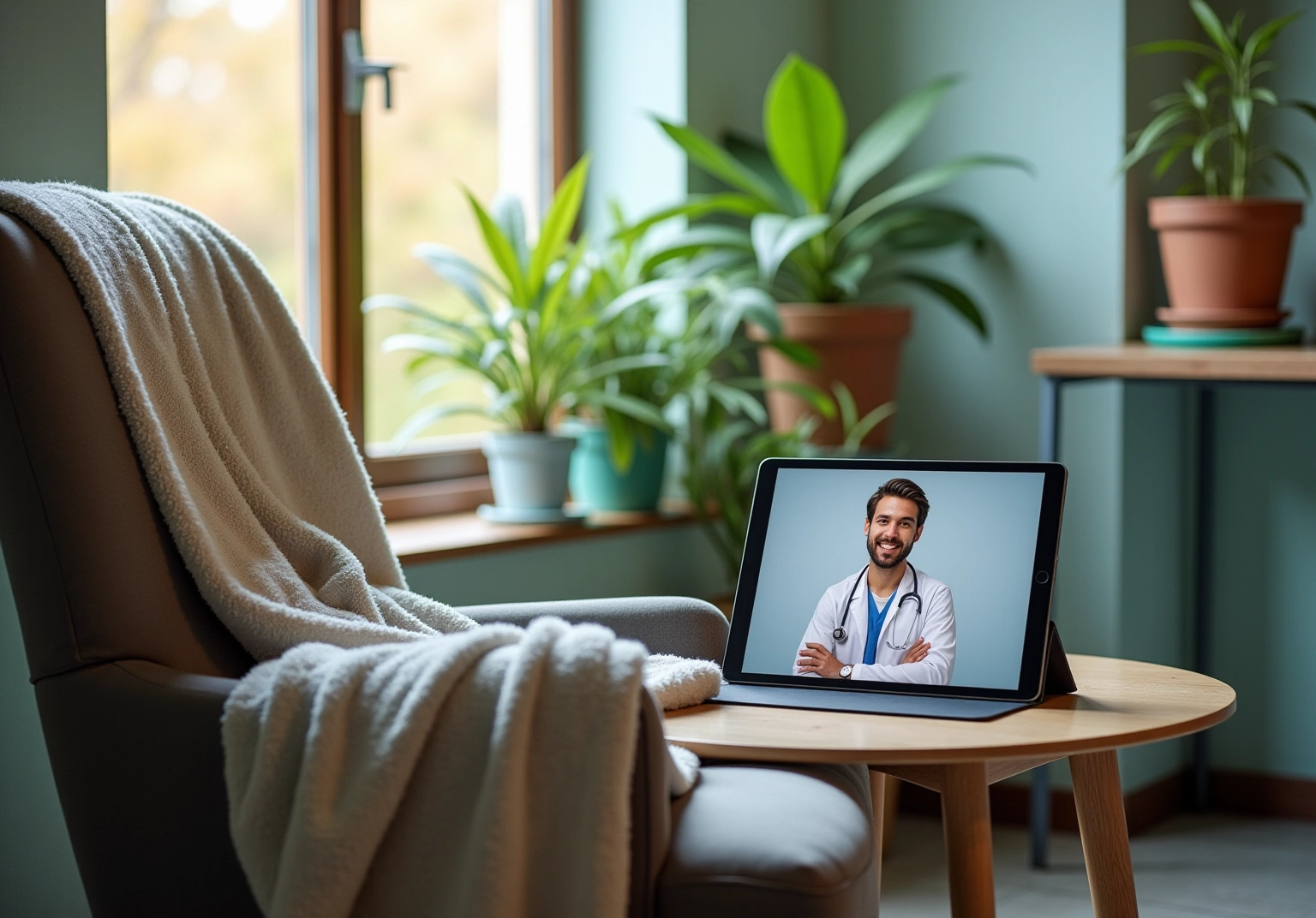
Overview
Obtaining a medical card in another state can feel overwhelming, but understanding the specific eligibility criteria, residency requirements, and application processes is the first step toward easing your journey. Each state has its own set of rules, which can vary significantly, and it’s crucial to be aware of these differences.
It’s important to remember that checking state regulations can make a significant difference in your experience. Utilizing resources like Leafy DOC can provide valuable guidance as you navigate this process. By following a structured approach, you can ensure that all necessary documentation and fees are submitted correctly, helping you avoid potential delays or denials.
As you embark on this journey, know that you’re not alone. Many have faced similar challenges, and with the right support and information, you can successfully obtain your medical card. Take a moment to gather the information you need, and don’t hesitate to reach out for assistance. Your health and well-being are worth the effort.
Introduction
Navigating the complexities of medical marijuana laws can feel overwhelming, especially for patients seeking relief while traveling or relocating. With 41 regions and Washington D.C. having established cannabis programs, it’s important to understand the nuances of reciprocity laws if you’re wondering whether you can obtain a medical card in another state. This guide aims to provide a clear pathway to explore your eligibility, application processes, and common challenges, empowering you to confidently access the therapeutic benefits of cannabis wherever you may be.
What steps can you take to ensure a smooth application experience and avoid potential pitfalls in this evolving landscape?
Understand Medical Marijuana Reciprocity
Cannabis reciprocity is an important topic for many patients seeking therapeutic relief. It involves the agreements between regions to recognize each other’s cannabis credentials. As of 2025, 41 regions and Washington D.C. have established cannabis programs, but not all offer reciprocity laws. For instance, regions like Maine, New Mexico, and Louisiana allow out-of-region cardholders to access cannabis legally, while others, like Florida, do not recognize out-of-state cards at all. This can be quite challenging for patients traveling from areas with more lenient regulations, as Florida requires patients to use local cannabis cards.
It’s essential to understand these nuances, especially for those who travel frequently or are considering relocating and wondering, can I get a medical card in another state? Some regions, like Arkansas, permit visitors to purchase therapeutic cannabis for up to 30 days after paying a fee, while others may require patients to apply for a local therapeutic cannabis card. To find out if you can get a medical card in another state, it’s advisable to check the state’s official health department website or consult resources like Leafy DOC, which provide updated information on state-specific laws and regulations. Taking this proactive approach can help patients navigate the complexities of cannabis access more effectively.
For individuals looking to obtain a cannabis prescription, Leafy DOC offers a convenient process through telehealth services. You can avoid the long wait at the doctor’s office by scheduling your cannabis certification assessment from the comfort of your home. By simply submitting an intake form with your personal details and ID, you can easily book an on-demand telehealth appointment or choose a time that works best for you.
Authorized doctors will evaluate qualifying conditions, answer any questions or concerns you may have, and provide recommendations for cannabis treatment via email. Many applications are processed within 24-48 hours, making Leafy DOC’s services particularly appealing for chronic pain patients who need prompt access to cannabis. Remember, you deserve the support and care you need on your journey to wellness.
Verify Eligibility and State Requirements
Before you inquire about whether I can get a medical card in another state, it’s important to understand your eligibility based on that area’s specific criteria. Each region has its own list of qualifying conditions, often including chronic pain, anxiety, PTSD, and other medical concerns. Additionally, residency requirements can vary; some regions require proof of residency, while others allow non-residents to apply under certain conditions, leading to the question, can I get a medical card in another state? You may find it helpful to follow these steps to verify your eligibility:
- Investigate the Medical Marijuana Program of the Region: Start by visiting the official health department website. This will provide you with crucial details about qualifying conditions and the application process.
- Check Residency Criteria: It’s important to determine whether the region requires you to be a resident or if it allows temporary health cards for visitors, particularly when considering if I can get a medical card in another state. This can significantly impact your application.
- Gather Necessary Documentation: Compile any required documents, such as health records, proof of residency, and identification. Having everything ready can ease the process.
- Consult with a Licensed Healthcare Provider: If you have any uncertainties about your eligibility, consider discussing your situation with a healthcare provider who is knowledgeable about the state’s medical marijuana regulations. They can offer guidance tailored to your needs.
By taking these steps, you can feel more confident in navigating the process and ensuring that your needs are met.
Complete the Application Process
Once you have confirmed your eligibility and gathered the necessary documentation, you might be wondering, can I get a medical card in another state to proceed with the process. Here’s a step-by-step guide to help you along the way:
- Visit the State’s Medical Marijuana Program Website: Navigate to the official site where you will find the enrollment form and detailed instructions.
- Fill Out the Enrollment Form: Complete the enrollment form accurately, providing all necessary information. It’s common to overlook details or make errors, which can lead to delays. Remember, double-checking your application can save you time and prevent unnecessary setbacks.
- Schedule Your Telehealth Appointment: To make things easier, arrange your marijuana certification evaluation through Leafy DOC. You can submit an intake form with your personal details and ID from the comfort of your home. You’ll connect with a licensed physician online in just minutes via phone call or video chat to discuss your qualifying condition and any questions you may have.
- Submit Required Documentation: Attach the necessary documents, such as proof of residency, medical records, and identification. Ensure that all documents are current and clearly legible.
- Submit the Processing Fee: Most regions require a fee for processing your request, typically between $50 and $99. Be prepared with the correct payment method.
- Arrange a Consultation (if necessary): Some regions may require a consultation with a licensed healthcare provider. If this is the case, scheduling this appointment ahead of time can help avoid delays.
- Submit Your Request: Once everything is in order, submit your request according to your region’s regulations. It’s wise to keep a copy of your submission for your records.
In 2025, the average processing duration for therapeutic cannabis requests varies by state, which makes one wonder, can I get a medical card in another state, with many submissions processed within 24-48 hours. This efficiency highlights the importance of accurate and complete submissions to facilitate quick approvals. For instance, patients who followed the specified procedures and provided comprehensive records often reported successful implementations within the expected timeframe.
Get Your Medical Card: Connect with a licensed physician online in minutes to take the first step towards obtaining your medical marijuana card. Remember, you are not alone in this journey; support is available every step of the way.
Troubleshoot Common Application Issues
Even with thorough preparation, you may encounter challenges during the submission process. It’s important to acknowledge these hurdles, and here are some common problems along with supportive solutions to help you navigate them:
-
Incomplete Form: Make sure that every section of the form is filled out completely. Missing information can lead to delays, and many regions report application denial rates due to incomplete submissions. After obtaining your certification from a licensed doctor, you may want to check if can I get a medical card in another state or if your region requires registration before applying for your cannabis card.
-
Incorrect Documentation: Take a moment to double-check that all required documents are included and meet local specifications. If any document is rejected, don’t hesitate to reach out to the local medical marijuana program for clarification. This can help prevent additional complications. It’s also essential to ensure that your physician’s certification aligns with your state’s requirements to avoid any issues.
-
Payment Issues: If your fee isn’t processed, please verify that your payment method is valid and that you followed the payment instructions correctly. Payment issues can significantly delay your request, so addressing them promptly is crucial.
-
Consultation Denials: If a healthcare professional refuses your consultation, consider finding another provider who is knowledgeable about local medical marijuana regulations. Many patients have found success by consulting with providers who specialize in cannabis evaluations, so don’t lose hope.
-
Application Denials: If your application is denied, take a moment to review the reasons provided. You might consider reapplying with corrected information or additional documentation. Many states allow for appeals or resubmissions, which can be a valuable opportunity to rectify any issues. Remember, you’re not alone in this journey, and there are paths forward to achieve your goals.
Conclusion
Navigating the complexities of obtaining a medical marijuana card in another state can feel overwhelming. However, understanding the principles of cannabis reciprocity and state-specific regulations is vital for your journey. This guide has outlined essential steps to help you confidently explore your options, ensuring you can access the therapeutic relief you need, no matter where you are.
It’s important to remember that verifying eligibility based on each region’s specific criteria is crucial. Understanding residency requirements and following a structured application process can make a significant difference. By utilizing resources like state health department websites and telehealth services such as Leafy DOC, you can streamline your journey towards securing a medical card. Additionally, being aware of common application issues and how to troubleshoot them can greatly enhance your chances of success.
Ultimately, the journey to obtaining a medical marijuana card is about empowerment and access to necessary care. You are encouraged to take proactive steps, stay informed about local laws, and seek guidance from knowledgeable healthcare providers. With the right preparation and resources, achieving access to medical cannabis can be a smoother and more rewarding experience. Remember, you are not alone in this process—support is available, and your health and well-being are worth the effort.
Frequently Asked Questions
What is cannabis reciprocity?
Cannabis reciprocity refers to agreements between regions that recognize each other’s cannabis credentials, allowing patients from one area to access cannabis in another area.
How many regions have established cannabis programs as of 2025?
As of 2025, 41 regions and Washington D.C. have established cannabis programs.
Do all regions with cannabis programs offer reciprocity laws?
No, not all regions with cannabis programs offer reciprocity laws. For example, some regions like Maine, New Mexico, and Louisiana allow out-of-region cardholders to access cannabis legally, while others, like Florida, do not recognize out-of-state cards.
What challenges do patients face when traveling to states with strict cannabis laws?
Patients traveling from areas with more lenient regulations may face challenges, as some states, like Florida, require patients to use local cannabis cards and do not recognize out-of-state cards.
Can I obtain a medical cannabis card in another state?
Yes, it is possible to obtain a medical cannabis card in another state, but it depends on the state’s laws. Some regions, like Arkansas, allow visitors to purchase therapeutic cannabis for up to 30 days after paying a fee, while others may require applying for a local therapeutic cannabis card.
How can I find out about medical cannabis laws in another state?
To find out about medical cannabis laws in another state, it is advisable to check the state’s official health department website or consult resources like Leafy DOC for updated information.
What services does Leafy DOC offer for obtaining a cannabis prescription?
Leafy DOC offers a convenient telehealth process for obtaining a cannabis prescription, allowing patients to schedule assessments from home, submit personal details and ID, and book on-demand appointments.
How quickly are applications processed through Leafy DOC?
Many applications through Leafy DOC are processed within 24-48 hours, making it a fast option for patients needing prompt access to cannabis.
Last Updated: July 12, 2025
Get Approved for Your Medical Marijuana Card in Minutes!

Get Your Medical Card
Connect with a licensed physician online in minutes

Like This Article?
Share with your friends
Table of Contents
Keep Reading
-
Exploring Different Medical Marijuana Strains For Enhanced Patient Access
Find the perfect medical marijuana strain for your needs and unlock enhanced patient access. Experience the benefits of different strains today – click now!
-
Combining Ibuprofen & Cannabis: Safe Pain Relief?
Can Ibuprofen and Cannabis work together for pain relief? Discover the facts and risks in this eye-opening article. Click now!
-
Step-by-Step to Your Oklahoma Marijuana Card: A Patient’s Guide
Get your Oklahoma marijuana card with this comprehensive step-by-step patient guide.

